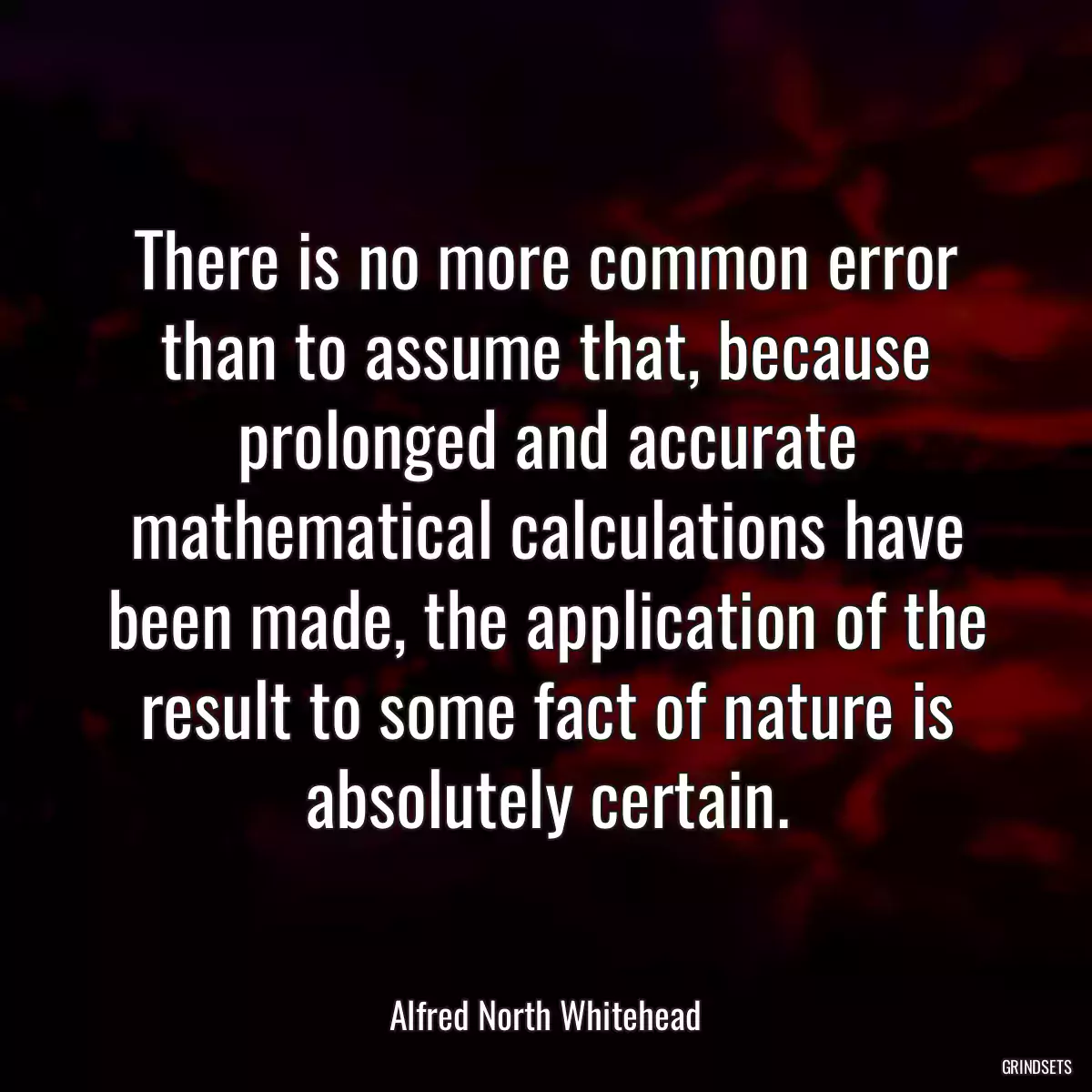
Quotes Alfred North Whitehead - page 3
Find dozens of Alfred North Whitehead with images to copy and share.

No one who achieves success does so without acknowledging the help of others. The wise and confident acknowledge this help with gratitude.
Without adventure civilization is in full decay. ... The great fact [is] that in their day the great achievements of the past were the adventures of the past.
The great achievements of the past were the adventures of the past. Only the adventurous can understand the greatness of the past.
You may also like
A clash of doctrine is not a disaster, it is an opportunity.
Art heightens the sense of humanity. It gives an elation to feeling which is supernatural...A million sunsets will not spur us on towards civilization. It requires Art to evoke into consciousness the finite perfections which lie ready for human achievement.
No man of science wants merely to know. He acquires knowledge to appease his passion for discovery. He does not discover in order to know, he knows in order to discover.
In order to acquire learning, we must first shake ourselves free of it.
You cannot be wise without some basis of knowledge, but you may easily acquire knowledge and remain bare of wisdom.

The Universe is vast. Nothing is more curious than the self-satisfied dogmatism with which mankind at each period of its history cherishes the delusion of the finality of existing modes of knowledge. Skeptics and believers are alike. At this moment scientists and skeptics are the leading dogmatists. Advance in detail is admitted; fundamental novelty is barred. This dogmatic common sense is the death of philosophic adventure.
...the self-satisfied dogmatism with which mankind at each period of its history cherishes the delusion of the finality of existing modes of knowledge.
A man really writes for an audience of about ten persons. Of course if others like it, that is clear gain. But if those ten are satisfied, he is content.
Nature, even in the act of satisfying anticipation, often provides a surprise.
Religion is the last refuge of human savagery.
From the moment of birth we are immersed in action, and can only fitfully guide it by taking thought.
For successful education there must always be a certain freshness in the knowledge dealt with. It must be either new in itself or invested with some novelty of application to the new world of new times. Knowledge does not keep any better than fish. You may be dealing with knowledge of the old species, with some old truth; but somehow it must come to the students, as it were, just drawn out of the sea and with the freshness of its immediate importance.
There are two principles inherent in the very nature of things, recurring in some particular embodiments whatever field we explore - the spirit of change, and the spirit of conservation. There can be nothing real without both. Mere change without conservation is a passage from nothing to nothing. . . . Mere conservation without change cannot conserve. For after all, there is a flux of circumstance, and the freshness of being evaporates under mere repetition.
You may also like

A race preserves its vigor so long as it harbors a real contrast between what has been and what may be; and so long as it is nerved by the vigor to adventure beyond the safeties of the past. Without adventure civilization is in full decay.